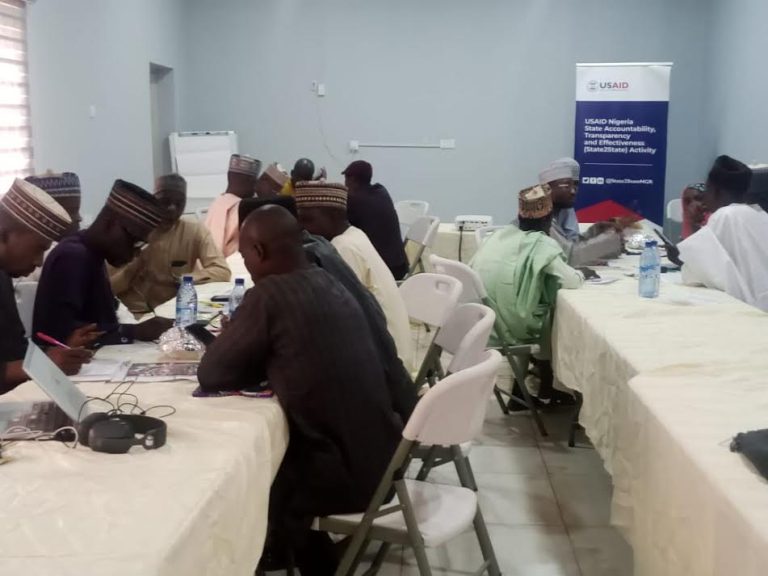From Shafa’atu Suleiman, Sokoto
Stakeholders at a two-day State Communications Strategy Implementation Review Meeting in Sokoto State have commended USAID State2State for its significant support to the state’s information sector.
Speaking during the event, Alhaji Ibrahim Mohammed, Permanent Secretary of the Sokoto State Ministry of Information and Orientation, highlighted the positive impact of USAID State2State’s interventions in bridging communication gaps between the government and citizens.
“We acknowledge the tremendous support provided by USAID State2State. The results have been remarkable. There have been noticeable improvements in capacity building and the quality of information output across Ministries, Departments, and Agencies (MDAs). I urge participants to intensify efforts in disseminating government activities effectively,” Mohammed stated.
Dr. Abdulkadir Ladan, the Sokoto State Team Lead for USAID State2State, outlined the objectives of the meeting, which included assessing achievements to date and identifying areas for improvement.
“The expected outcome of this meeting is the review and enhancement of the communication strategy, taking into account the challenges encountered during the implementation of the existing strategies,” Dr. Ladan noted.
The meeting featured an overview of the existing communication strategy and a detailed review facilitated by State2State Communication Specialist Israel Odiba. Key sessions included a review of the scope of work (SOW) implementation, discussions on action plans developed during the communication strategy orientation, and group sessions addressing critical communication areas.
On the second day, Dalhatu Magori, Chairman of the Sokoto State chapter of the Nigeria Union of Journalists (NUJ), kicked off activities with a recap of the first day’s events. This was followed by a gap analysis of the state’s communication strategy implementation, where participants identified challenges in communication delivery across MDAs and discussed unmet goals and emerging needs.
A session on adjusting and prioritising the State Communications Strategy focused on revising key action points to address gaps and setting priorities for the next quarter. Participants also shared experiences and strategies for overcoming challenges, explored digital platforms and social media, and emphasised inclusive communication approaches.
The meeting concluded with the development of an action plan for the next phase. Participants were assigned roles and responsibilities, along with timelines and milestones, to ensure effective implementation of the revised strategy.
